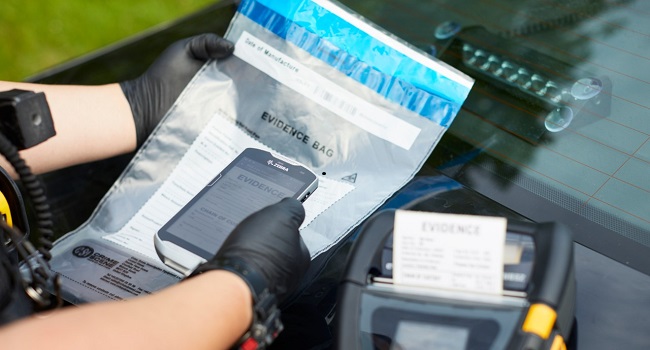Leading in a digital-first world
New technology can help officers work more efficiently, but choosing the systems is only possible if police leaders fully understand and acknowledge the fundamentals and make future-proof choices.
Being a leader in today’s police service is no easy task.
Whether you’re leading the entire service, in charge of a whole station, or heading up a team of officers, detectives, or support specialists, the role can feel like a constant balancing act.
Not only do you need to juggle the priorities of the public, but you also have to meet the demands of the Government of the day, as well as regionally-elected police and crime commissioners (PCCs).
Alongside this, there’s a daily battle to stay one step ahead of criminals while ensuring enough resources are available to coordinate operations to keep communities safe.
Policing is now at a pivotal moment. Technology is making as big an impact on investigative tools as it is on the types of offences being committed. It’s why all the different types of police leaderships have no choice but to focus on the future of digital transformation within their respective services.
But at a time of economic turbulence for the country, necessitating cutbacks in the public sector, this leap forward can understandably be difficult. Leaders are being tasked to find efficiencies on the one hand while increasing arrest and conviction rates on the other.
They’re also fighting to retain officer numbers on the frontline at the same time as fighting to retain the public trust.
This is one reason why implementing technological solutions amid these tough challenges shouldn’t be viewed as a quick process. Much has to be overcome, including unrealistic expectations, fears over change, and a lack of understanding of the processes – and the positives – it can deliver.
Policing leaderships are not technologists. IT colleagues are not policing experts. But both have to work hand-in-glove to deliver for a digital-first future with efficiency, cyber-security, and sustainability as the top priorities.
Together, these two groups have many problems that must be solved. There are also conflicting viewpoints to manage, cultural change to affect, and knowledge and comfort barriers to be broken down, not least when it comes to safety of data.
Future-proofing police forces with “police-proof” devices
This is why the future template for policing success should be built around technology enhancing efficiency. Equipping officers and backroom colleagues with the right devices – handhelds, tablets, and laptops – will speed up research and reporting. The right infrastructure inside police stations and out-in-the-field will return time from that investment – time that can be spent investigating crimes, showing a visible presence on the streets, and cultivating community cohesion.
However, when choosing the right technology, today’s policing leaders are often forced to prioritise easier implementations and purchasing choices that offer quicker wins, rather than starting on a long-term mission to embed deeper levels of change and digitalisation. They have budgets to balance, and targets to meet.
There is also pressure throughout the hierarchy. For leaderships, this means pressure being exerted downwards from the Government, the Home Office, and PCCs, and upwards from the public and local communities.
Consumer devices may only prove to be a sticking plaster. Handheld or mobile devices designed and built to be as accessible as a smartphone – with policing priorities firmly in mind – will prove more reliable, more efficient, and more future-proofed.
The cloud has a huge role to play here. When policing and IT leaderships are developing their roadmap, it must ensure devices and software applications are compatible with each other, and work seamlessly with internal networks and with other services around the country.
The technology must be as secure as possible, with interfaces and features that are simple for officers on the ground to use and understand. Any device must also be “police proof”, given the likelihood of breakages and losses in such fast-paced and volatile environments.
That is one reason why newer technologies such as RFID asset-tracking are now becoming critical to operations. By constantly monitoring the location of equipment in real time, financial losses can be reduced, and valuable time can be saved.
Choosing the right technology by asking the right questions
All of these factors will make a massive difference to staying ahead of today’s challenges and tomorrow’s crimes.
Sometimes short-term results might have to take precedence. But with better understanding and planning, leaderships can successfully think further ahead. They should not be expected to be an expert in what technology they need. However, their expertise should form the foundation for any system a trusted partner will build.
Such a partner will be able to bridge the knowledge and experience gap by explaining how solutions will solve the most pressing problems. A technology partner should also be able to advise on issues around legacy. Wholesale implementations of new systems and devices is a scary prospect for an organisation needing 100% up-time and when relying on full continuity of information.
Small and managed steps on a fully mapped out journey are important. Proactivity rather than reactivity is achieved by designing for the future, while keeping one clear eye on maintaining operational abilities in the present. It also means demonstrating that any new technology will meet future ISO standards, and not waste funds from tight budgets.
Policing leaderships should look to answer three questions of any new technology:
- How much time will it return to my officers and support staff and how will it improve their day-to-day working conditions, mental health, and results?
- Will this implementation survive at least three years of change – and can it be easily updated or added to in order to last even longer?
- What can it allow us to do more of, but with less resources? Has it been designed specifically for policing, with access to all of the right systems?
At Zebra, we know today’s police service leaders across all levels of the hierarchy are seeking efficiency and security from technology, they want to have full trust in a partner. Trust is vital to prove how new devices will keep officers out on the streets tackling crime rather than leaving them stuck inside the police station filing paperwork and reports.
Designing the right digital transformation programme together will also embed confidence; confidence in the leadership from its officers, confidence in those officers from the public, and confidence in the service and leadership as a whole from the Government and PCCs.
Integrating technology at the heart of policing is no longer an option; it’s a must. But for policing leaderships to adapt successfully to this change, they must first understand and acknowledge the fundamentals. Only then will they be able to inspire others to do the same.
Explore the critical role played by technology and digital transformation in Policing by visiting the Zebra website here.




